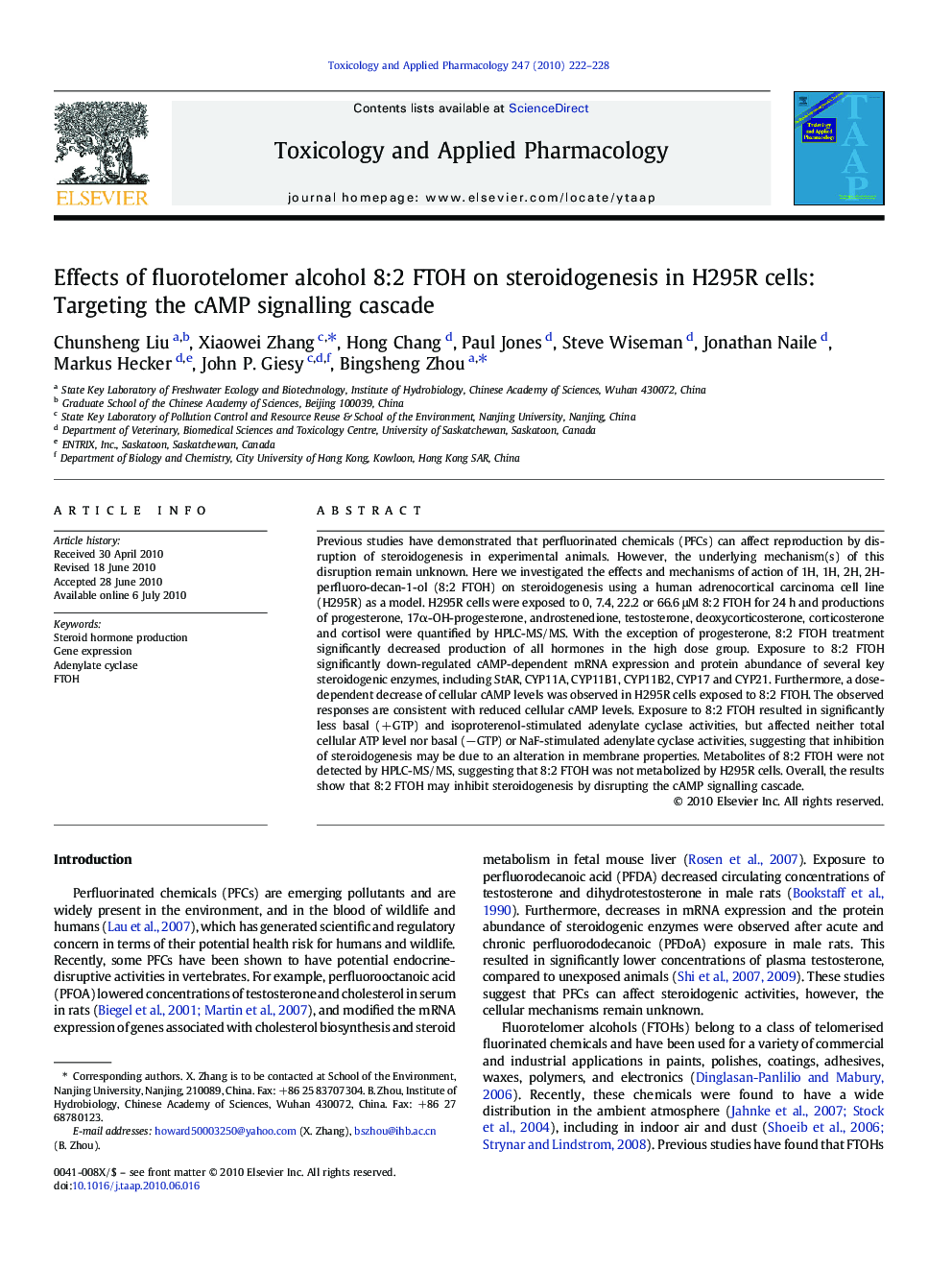| Article ID | Journal | Published Year | Pages | File Type |
|---|---|---|---|---|
| 2569555 | Toxicology and Applied Pharmacology | 2010 | 7 Pages |
Previous studies have demonstrated that perfluorinated chemicals (PFCs) can affect reproduction by disruption of steroidogenesis in experimental animals. However, the underlying mechanism(s) of this disruption remain unknown. Here we investigated the effects and mechanisms of action of 1H, 1H, 2H, 2H-perfluoro-decan-1-ol (8:2 FTOH) on steroidogenesis using a human adrenocortical carcinoma cell line (H295R) as a model. H295R cells were exposed to 0, 7.4, 22.2 or 66.6 μM 8:2 FTOH for 24 h and productions of progesterone, 17α-OH-progesterone, androstenedione, testosterone, deoxycorticosterone, corticosterone and cortisol were quantified by HPLC-MS/MS. With the exception of progesterone, 8:2 FTOH treatment significantly decreased production of all hormones in the high dose group. Exposure to 8:2 FTOH significantly down-regulated cAMP-dependent mRNA expression and protein abundance of several key steroidogenic enzymes, including StAR, CYP11A, CYP11B1, CYP11B2, CYP17 and CYP21. Furthermore, a dose-dependent decrease of cellular cAMP levels was observed in H295R cells exposed to 8:2 FTOH. The observed responses are consistent with reduced cellular cAMP levels. Exposure to 8:2 FTOH resulted in significantly less basal (+ GTP) and isoproterenol-stimulated adenylate cyclase activities, but affected neither total cellular ATP level nor basal (−GTP) or NaF-stimulated adenylate cyclase activities, suggesting that inhibition of steroidogenesis may be due to an alteration in membrane properties. Metabolites of 8:2 FTOH were not detected by HPLC-MS/MS, suggesting that 8:2 FTOH was not metabolized by H295R cells. Overall, the results show that 8:2 FTOH may inhibit steroidogenesis by disrupting the cAMP signalling cascade.
